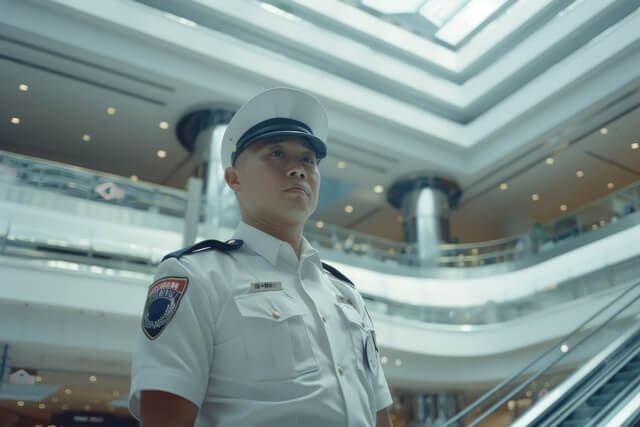
If you’ve worked in security long enough, you’ll know this: technical skills get you in the door, soft skills keep you there. They shape how people see you, how teams work with you, and how smoothly a tense day ends.
For over 15 years, KnowledgeTree has trained officers across Singapore through WSQ security courses recognised by SkillsFuture Singapore (SSG). And while the lessons often focus on procedures and protocols, there’s another layer that truly builds great officers—the personal habits and people skills that turn good training into great practice.
Let’s look at nine soft skills that make a real difference in your security career, no matter where you’re starting from.
The best officers speak with calm confidence. They don’t need to raise their voice to be heard; their clarity does the work.
Whether you’re briefing your team or explaining a rule to an impatient guest, clear communication saves time and stress. It shows you’re in control.
Practise listening before speaking. Keep your instructions simple. If you’re unsure whether someone understood you, check. In the field, a short, clear message can prevent a long list of problems.
Observation isn’t just about noticing; it’s about noticing what others miss. A seasoned security officer can tell when something’s off just by watching how people move or react.
Pay attention to changes in routine. Remember faces. Notice when someone avoids eye contact or acts out of place. These details matter.
Observation gets sharper with experience, but you can train it too. Many security training programmes in Singapore use role-play and situational tests to build that instinct, the quiet alertness that separates sharp officers from the rest.
Security often means managing emotions. This includes yours and everyone else’s. A senior supervisor might need to calm down a frustrated visitor one minute and settle a disagreement between guards the next.
Emotional intelligence helps you read the room, spot what people feel rather than just what they say, and respond calmly.
If you lose your temper, others will too. If you stay calm, they’ll often follow your lead. It’s a skill that earns respect, not through words, but through presence.
Every day brings something unexpected: a sudden alarm, a missing badge, or an equipment failure. Problem-solving isn’t about memorising responses; it’s about staying composed enough to think clearly when others can’t.
If you’re in a security operations role, you’ll face this constantly. Start by observing the situation, gathering quick facts, and choosing the safest step forward.
The WSQ Senior Security Supervisor courses at KnowledgeTree include real-life scenarios that sharpen this ability, helping you act faster and with better judgement.
You can’t build security on your own. It’s always a team effort, whether that’s covering shifts, watching cameras, or managing crowd flow.
Good teamwork means communication, respect, and consistency. If you promise to follow up, do it. If someone’s struggling, lend a hand before they ask.
As a team leader or officer, your reliability influences everyone else’s mood. The most dependable teams aren’t perfect; they just trust each other completely. That trust starts with how you show up every day.
The industry never stays still. New systems appear, procedures change, and the pace of work keeps shifting.
Adaptability helps you handle all that without losing confidence. Maybe your building adopts biometric scanners. Maybe your post introduces digital reporting. Learn the system. Ask questions. Stay curious.
The officers who adapt tend to stand out. Signing up for refresher courses or advanced security training in Singapore can keep your skills current and your mindset open.
Leadership doesn’t start when you get promoted. It starts the moment you decide to take ownership.
A good supervisor leads through attitude. They turn up early, stay composed, and treat everyone with the same respect they expect back.
If someone in your team makes a mistake, correct quietly and guide them, not shame them. The best leaders lift others while staying accountable themselves. It’s rarely flashy, but everyone notices.
Tension is part of the job. A loud argument in the lobby. A frustrated contractor refuses to sign in. These moments test your patience more than your badge.
Conflict management is about timing and tone. Keep your body language relaxed, your tone even, and your words neutral. The goal isn’t to win, but to calm things down.
A frontline officer who handles tough situations with composure often earns the trust of both management and the public. It’s a quiet form of authority, and the kind that lasts.
Security shifts can stretch long, and distractions creep in fast. Time management is what keeps you effective, not exhausted.
Plan your shift. Prioritise duties, but leave space for the unexpected. Use calm moments to check your notes or refresh procedures.
An officer who manages time well stands out immediately. They rarely rush, yet everything gets done. Supervisors notice that balance, because it signals someone ready for more responsibility.
The best part about soft skills is that anyone can build them. You don’t need years of experience. Awareness and practice get you far. Over time, these habits become second nature.
Technical knowledge keeps people safe, while soft skills help everyone work better together. When you grow in both, you grow in every direction; as an officer, a colleague, and a leader others can count on.
If you’re ready to strengthen your foundation, explore the accredited WSQ security courses at KnowledgeTree. You’ll learn from trainers who’ve been in the field, faced the same challenges, and know what it takes to build not just a career, but a reputation worth having.